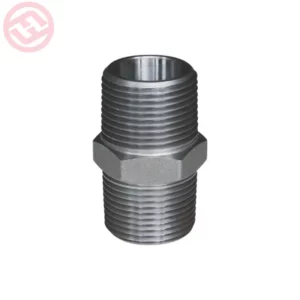When selecting the right forged pipe fittings for a specific project or system, there are several important considerations to take into account:
- Application requirements: Understand the specific requirements of the application, including the type of fluid or gas being transported, the operating pressure and temperature conditions, and any special considerations such as corrosion resistance or sanitary requirements. This will help determine the appropriate material and type of forged fitting to use.
- Material compatibility: Consider the compatibility of the forged fitting material with the pipe material and the fluid or gas being conveyed. Different materials, such as carbon steel, stainless steel, or alloy steel, have varying levels of corrosion resistance and mechanical properties that may be suitable for different applications.
- Pressure ratings: Verify that the forged fitting has the appropriate pressure rating to handle the expected operating pressures of the system. Pressure ratings are typically specified by industry standards and codes.
- Temperature limitations: Consider the temperature limitations of the forged fitting material to ensure it can withstand the expected operating temperature range of the system without deformation or failure.
- Size and dimensions: Ensure that the dimensions and sizes of the forged fittings align with the pipe size and dimensions of the system. Proper matching of sizes is crucial for a secure and leak-free connection.
- Standards and codes: Check if the forged fittings comply with relevant industry standards and codes, such as ASTM (American Society for Testing and Materials), ANSI (American National Standards Institute), or ASME (American Society of Mechanical Engineers). Compliance with standards ensures quality and reliability.
- Installation requirements: Consider the installation method and techniques required for the specific forged fitting. Some fittings may require welding, threading, or socket welding, and the availability of skilled labor or equipment for installation should be taken into account.
- Maintenance and accessibility: Evaluate the ease of maintenance and accessibility of the forged fittings. In some cases, fittings that allow for easy disassembly and reassembly can simplify maintenance and repairs.
- Cost considerations: Consider the cost of the forged fittings, including the initial purchase price, long-term durability, and any additional expenses related to installation or maintenance. Balancing cost with quality and performance is essential.
- Supplier reliability: Choose reputable suppliers or manufacturers with a track record of delivering high-quality forged fittings. Supplier reliability and support can ensure timely delivery, technical assistance, and availability of spare parts.
By considering these factors, you can select the right forged pipe fittings that meet the specific requirements and ensure the integrity and performance of the piping system.
What are some common applications of forged pipe fittings?
Forged pipe fittings are widely used in various industries and applications.
Here are some common applications of forged pipe fittings:
- Oil and gas industry: Forged pipe fittings are extensively used in the oil and gas industry for upstream, midstream, and downstream operations. They are employed in pipelines, refineries, petrochemical plants, and offshore platforms for the transportation and processing of oil, gas, and related products.
- Chemical industry: Forged pipe fittings are used in chemical processing plants, where they handle the conveyance of various chemicals, acids, and corrosive fluids. They provide reliable connections and resistance to chemical corrosion.
- Power generation: In power plants, forged pipe fittings are utilized in steam, water, and gas systems. They are crucial components in boiler systems, heat exchangers, turbines, and other power generation equipment.
- Water and wastewater treatment: Forged fittings are commonly employed in water treatment plants, wastewater treatment facilities, and desalination plants. They are used for the distribution, control, and conveyance of water, including potable water, process water, and treated wastewater.
- HVAC systems: Forged pipe fittings find applications in heating, ventilation, and air conditioning systems. They are used for connecting pipes carrying hot or chilled water, as well as for gas distribution in HVAC systems.
- Pharmaceutical industry: Forged fittings are utilized in pharmaceutical manufacturing plants where hygiene and cleanliness are crucial. Forged Pipe Fitting They are employed in the conveyance of pharmaceutical ingredients, sterile fluids, and other critical fluids.
- Food and beverage industry: In food processing plants, breweries, and beverage production facilities, forged pipe fittings are used for transporting food products, liquids, and gases. They meet the sanitary requirements and ensure safe and hygienic operations.
- Pulp and paper industry: Forged fittings are used in pulp and paper manufacturing plants for conveying chemicals, steam, and wastewater. They are resistant to corrosion and can withstand harsh operating conditions.
- Construction and infrastructure: Forged pipe fittings are employed in plumbing systems for residential, commercial, and industrial buildings. They provide reliable connections for water supply, drainage, and HVAC systems.
- Mining industry: In mining operations, forged fittings are used for conveying water, slurry, and other fluids in the extraction and processing of minerals. They withstand abrasive environments and high-pressure conditions.
These are just a few examples of the many applications of forged pipe fittings. Their versatility, strength, and resistance to pressure and corrosion make them suitable for various industries and demanding environments.
